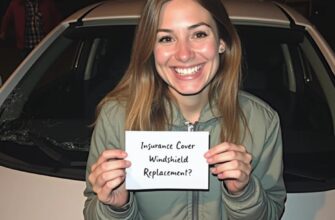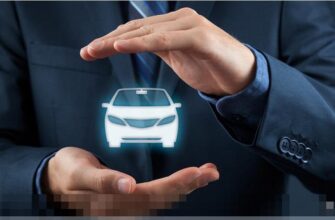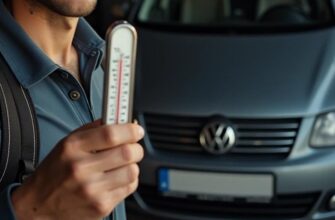Volkswagen’s Start-Stop system is an innovative fuel-saving technology that automatically shuts off the engine when your car comes to a stop. However, the dreaded “Start-Stop Error” message can pop up on your dashboard display, indicating an issue. In this comprehensive guide, we’ll explore what causes Start-Stop errors, their implications, and most importantly – how to troubleshoot and resolve them.
What is Volkswagen’s Start-Stop System?
The Start-Stop system, also known as the idle-stop-start system, is designed to improve fuel efficiency and reduce emissions. Here’s how it works:
- It uses sensors to monitor parameters like vehicle speed, engine temperature, and battery charge level.
- When you come to a complete stop, like at a traffic light, it automatically turns the engine off after a few seconds.
- Once you lift your foot off the brake, it seamlessly restarts the engine.
By reducing unnecessary idling time, especially in stop-and-go traffic, the Start-Stop system can lower fuel consumption by up to 10% according to Volkswagen. It also helps minimize exhaust emissions in urban driving.
What Does the Start-Stop Error Message Mean?
You may see a warning pop up on your dash that says “Start-Stop Error”, “Start-Stop System Failure”, or something similar. This indicates there is a problem with the system that is preventing it from operating normally.
Here are some common causes for Start-Stop errors:
- Weak or depleted battery
- Battery not sufficiently charged by alternator
- Issues with starter motor operation
- Faulty sensors
The error message is the system’s way of notifying you that it requires attention. Ignoring it can lead to a continual disruption of Start-Stop functionality, potentially reducing fuel efficiency. It’s important to diagnose and repair Start-Stop errors promptly to maintain optimal performance.
Why You Shouldn’t Ignore Start-Stop Errors
It may be tempting to disregard Start-Stop error messages, especially if the car seems to otherwise drive fine. But here are some important reasons why you shouldn’t ignore them:
- Reduced fuel economy – The fuel savings benefits of the system will be diminished if it’s not working properly. This can cost you more money on gas over time.
- Increased emissions – With the Start-Stop disabled, your car may produce higher levels of exhaust emissions that contribute to air pollution.
- Potential drivability issues – An underlying problem that’s causing the error could lead to drivability complaints like engine stalling, rough idling, or difficulty starting.
- Risk of more costly repairs – If left unaddressed, small issues that trigger Start-Stop errors can escalate into more expensive problems down the road.
- Invalid warranty claims – Volkswagen may reject warranty claims for related failures if you continued driving despite Start-Stop error warnings.
Getting Start-Stop errors taken care of quickly provides both environmental and financial benefits. Plus, it prevents avoidable headaches!
How to Troubleshoot Volkswagen Start-Stop Errors
When a Start-Stop error pops up, here are some effective DIY troubleshooting steps you can take to get to the bottom of it:
Inspect the Battery
The battery is one of the most common culprits for Start-Stop errors. Due to frequent engine stop/start cycles, the battery must be in optimal condition to operate the system. Try the following battery tests:
- Check battery voltage – Use a multimeter to test voltage. It should be 12.4-12.6V when fully charged. Lower readings indicate a weak battery.
- Load test the battery – Auto parts stores can conduct a load test to assess the battery’s ability to handle high current demands.
- Check for loose connections – Wiggle battery cables to check for corrosion and loose connections causing high resistance. Tighten and clean as needed.
- Check battery age – Most batteries last 3-5 years. Older ones are prone to failure.
If testing confirms the battery is worn out, replacement is the fix. Be sure to install the exact replacement recommended in your owner’s manual.
Inspect the Alternator
The alternator charges the battery and powers the vehicle’s electrical system while driving. Start-Stop places high demands on the alternator. Signs of a failing alternator include:
- Dim headlights at idle
- Battery not charging properly
- Start-Stop errors, particularly when hot or running accessories
Alternator output and connections can be tested by shops to diagnose issues. Replacement may be required if it’s worn out.
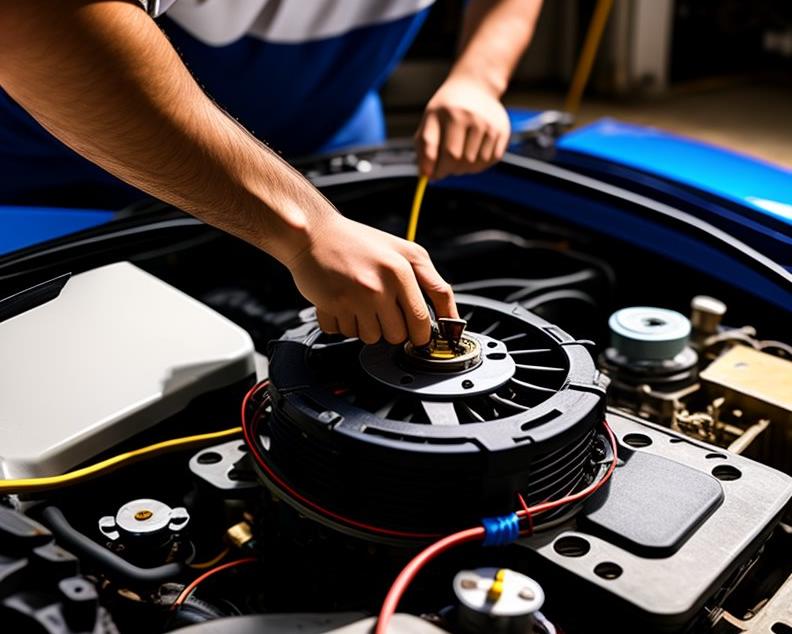
Check the Starter Motor
To enable smooth restarting from a stop, the starter motor must be in top shape. Here’s how to check for starter problems:
- Listen for unusual noises – Grinding or whining sounds can indicate issues.
- Test for slow cranking – Extended cranking before engine starts points to starter troubles.
- Check starter voltage drop – Use a multimeter to verify battery voltage is present at the starter when cranking. Significant voltage drop indicates faulty connections.
- Tap test – Lightly tap the starter with a tool while operating the ignition. If the starter instantly cranks better, it likely needs to be replaced.
- Perform starter current draw test – High amperage draw points to a worn out starter needing replacement.
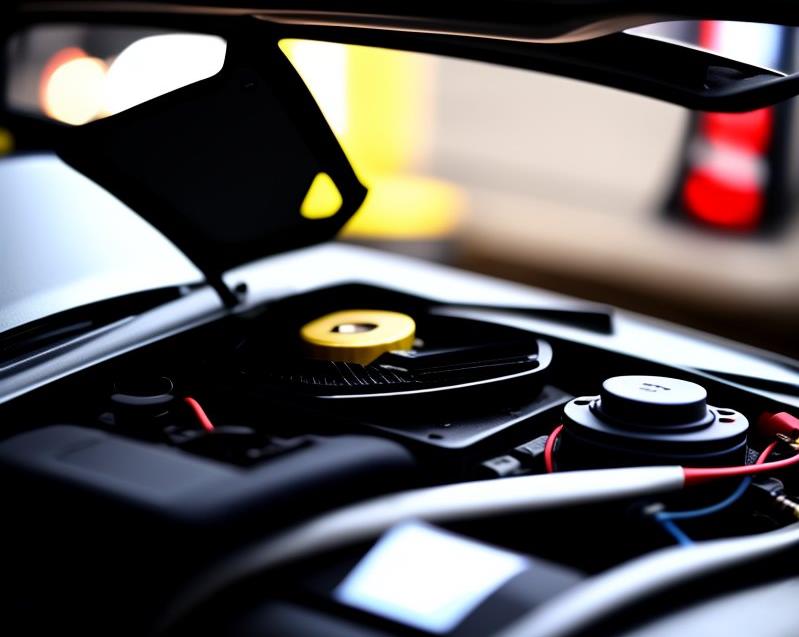
Verify Sensor Operation
The Start-Stop system relies on input from sensors monitoring the engine, battery voltage, vehicle speed, and other parameters. Faulty sensor data can trigger errors. Sensor diagnostics to perform include:
- Throttle position sensor – Ensure it reaches high and low voltage values as the throttle opens and closes.
- Engine coolant temperature sensor – Compare live readings vs gauge temp. Readings should correlate.
- Vehicle speed sensor – Verify speed sensor reads zero when static and correlates to speedometer on a test drive.
- Battery sensor – Check for stable voltage readings that align with battery tester values.
Sensor replacement may be required if output is erratic or out of spec after inspections. Consult a service manual for required values.
Professional Diagnostic Strategies
For Start-Stop errors that persist after DIY troubleshooting, your next step should be seeking professional diagnostics. Volkswagen repair shops have advanced capabilities to accurately pinpoint issues, including:
- Diagnostic scan tools – Dealerships and shops have pro-grade scanners to access onboard computer trouble codes and operate system actuators. This simplifies diagnosing intermittent electrical faults.
- Component testing – Professional shops can test components like alternators and starter motors under simulated operating loads to reveal issues. This aids troubleshooting of borderline components.
- Microscopic inspections – Shops use specialized tools to inspect electronic components for minute flaws not visible to the naked eye. Useful for identifying sensor or controller issues.
- Software updates – Dealers can reflash the vehicle computer with the latest software version which may include Start-Stop bug fixes.
Relying on professional diagnostics can save time and avoid unnecessary parts replacements when tackling tricky Start-Stop issues. Take advantage of their advanced capabilities.
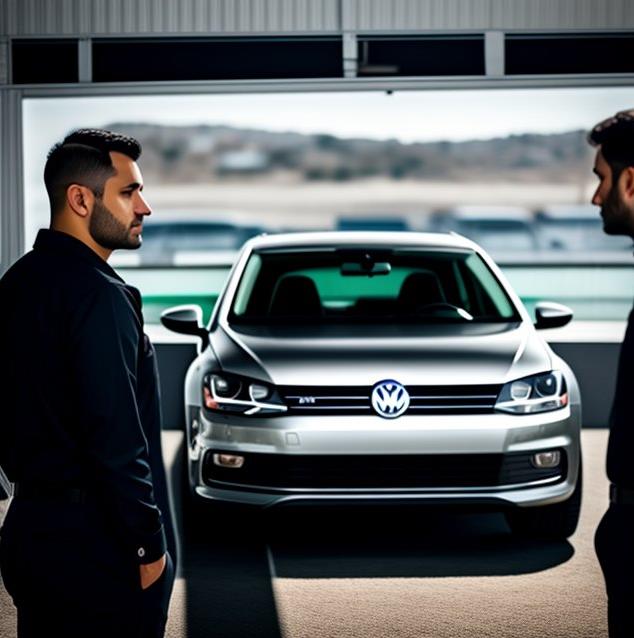
Preventing Start-Stop Errors in Your Volkswagen
An ounce of prevention is worth a pound of cure when it comes to maintaining the Start-Stop system. Here are some tips to help avoid problems:
- Follow the maintenance schedule – Regularly change engine oil, filters, spark plugs as specified in your owner’s manual to keep all systems running optimally.
- Check battery health – Have the battery tested annually to catch any signs of deterioration before it leads to problems.
- Use quality fuel – Poor fuel quality can cause drivability issues that disrupt Start-Stop operation. Use top tier gasoline.
- Drive gently – Aggressive driving and hauling heavy loads are demanding on the battery and charging system. Easy acceleration and speed help avoid overtaxing the system.
- Shut off unneeded accessories – Turn off features like seat heaters when not needed to reduce load on the electrical system that supports Start-Stop.
- Address warning lights – Attend to any battery or charging related warning lights promptly before they cascade into a Start-Stop failure.
Following good maintenance practices minimizes stress on the Start-Stop components, keeping the system running optimally.
Start-Stop Technology in Volkswagen Hybrid and Electric Vehicles
Hybrid and electric vehicles require robust and complex Start-Stop systems tailored to their unique powertrain architectures. Here’s an overview:
Hybrids: Hybrids like the Volkswagen Golf GTE integrate an electric motor and battery with a gasoline engine. Their Start-Stop systems intelligently decide when to shut off the gas engine, rely solely on electric propulsion, or use both for maximum efficiency.
Electric Vehicles: All-electric Volkswagens like the ID.4 utilize Start-Stop technology to
deactivate ancillary systems like climate control when stopped. This preserves battery charge since there is no combustion engine to shut off.
These state-of-the-art systems require specialized expertise to service. Volkswagen technicians receive advanced training to troubleshoot Start-Stop issues in hybrid and electric models. They have access to proprietary diagnostics and repair procedures.
DIY repairs on hybrid/EV Start-Stop systems are not recommended due to their complexity and high voltage components. Instead, rely on authorized Volkswagen repair centers to ensure repairs are done properly.
“The Start-Stop error came on in my 2015 VW Passat. I noticed the instant stop/start function was no longer working when I came to stops. I suspected the battery was failing to maintain the system. Tests showed it was time to replace the battery. New battery fixed it and I haven’t had trouble since.”
Real Driver Experiences Dealing with Start-Stop Errors
To provide some real-world context, here are a few firsthand accounts from Volkswagen owners who encountered Start-Stop system issues:
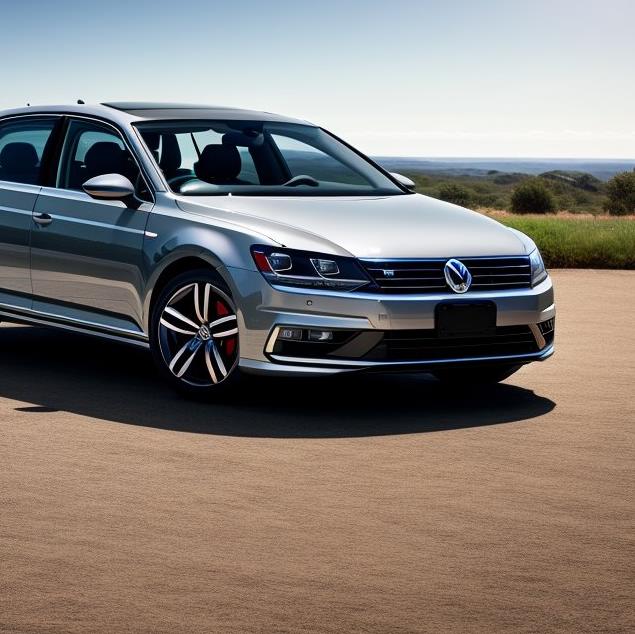
“I started getting the Start-Stop failure warning intermittently in my 2018 VW Golf. It would come and go. When it occurred, the engine wouldn’t turn off at lights. I took it to the dealer and they reprogrammed the computer with new software. Apparently there was a bug that they fixed with the update. No more issues after that service.”
As you can see from these accounts, Start-Stop errors can stem from various issues. Having a professional diagnose the specific cause in your Volkswagen is key to rectifying the problem.
Key Takeaways on Volkswagen Start-Stop Errors
To recap the core information in this in-depth guide on troubleshooting Volkswagen Start-Stop errors:
- The Start-Stop system turns off the engine when stopped to save fuel. Errors indicate a system fault.
- Common causes include battery, alternator, starter and sensor issues.
- Don’t ignore errors, as driving with a disabled system impacts mpg, emissions, and could lead to bigger problems.
- DIY troubleshooting involves battery, charging system, starter, and sensor testing.
- For persisting issues, rely on professional diagnostic capabilities like scans, lab tests, and software updates.
- Prevent problems by sticking to maintenance schedules and addressing warning lights promptly.
- Hybrid and electric VWs need dealer-level expertise for Start-Stop diagnostics and repair.
- Addressing Start-Stop errors quickly restores optimal system function and saves money.
Equipped with this technical guidance, you can troubleshoot Start-Stop issues in your Volkswagen. Consult a trusted repair shop for expert assistance when needed.
“My 2016 VW Beetle threw the Start-Stop error constantly. The battery and charging system checked out fine. It turned out to be a bad coolant temperature sensor. It was sending incorrect signals that shut down the Start-Stop as a failsafe. Simple sensor replacement solved it.”
Frequently Asked Questions about Volkswagen Start-Stop Errors
What are some common causes of Start-Stop errors?
The most common causes are a weak battery, faulty alternator not charging properly, starter motor issues, and problems with sensors that feed the system data.
Does the Start-Stop system put more strain on the battery?
Yes, the frequent stop/start cycling does demand more from the battery than in a non Start-Stop vehicle. It’s critical to maintain the battery to avoid issues.
How can I diagnose Start-Stop sensor problems?
Carefully check sensor output values with a scan tool and compare to required specifications. Replace any sensors with erratic, out of range readings.
What should I do if DIY troubleshooting doesn’t resolve the error?
Take your Volkswagen to an authorized repair shop or dealership to have advanced computer diagnostic and testing procedures performed to pinpoint the fault.
Does driving with an inactive Start-Stop system due to errors impact emissions?
Yes it does. With Start-Stop disabled, your vehicle may produce higher emissions from increased idle time, counteracting its emissions reduction purpose.
Can Start-Stop errors cause the engine to stall unexpectedly?
It’s unlikely, but a underlying problem that triggers a Start-Stop error may also lead to occasional stalling. Diagnose and repair the issue promptly.
Do battery replacements for Start-Stop vehicles need special batteries?
Yes, they require absorbed glass mat (AGM) batteries that can withstand the demands. Ensure you install the proper replacement battery for Start-Stop operation.
Is it safe to drive with a Start-Stop error temporarily?
It’s generally safe to drive short distances to the repair shop. However, get it repaired promptly to avoid accelerated wear of components from reduced charging and starting functions.
Will ignoring Start-Stop errors void my Volkswagen warranty?
Possibly – VW may reject covering related failed parts if you continued driving despite clear warnings of system problems. Don’t delay repairs.
How can I prevent Start-Stop problems from occurring?
Stay diligent on maintenance, test battery annually, address any warning lights immediately, avoid aggressive driving, don’t overload electrical systems, and shut off unneeded accessories.




